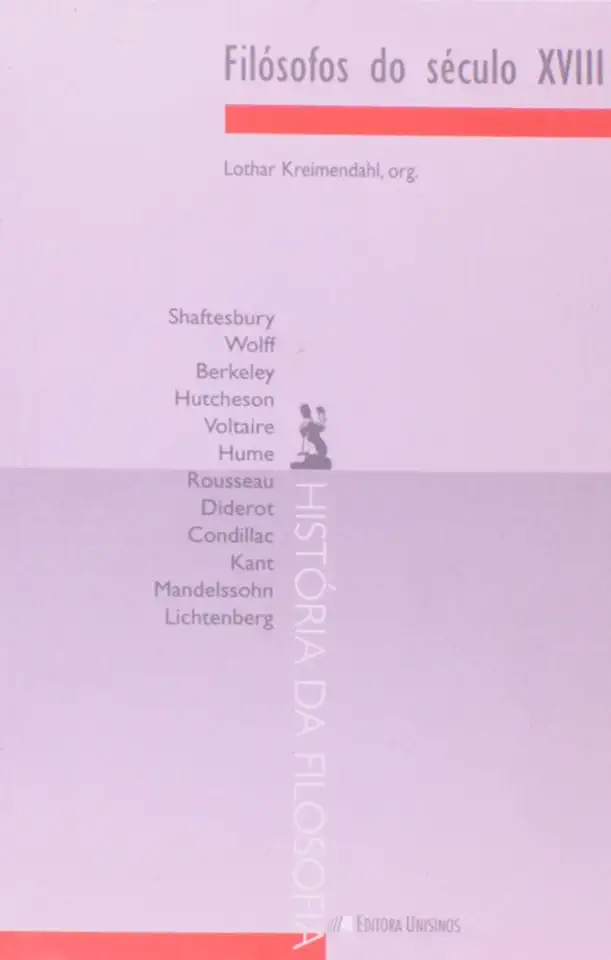
18th Century Philosophers - Lothar Kreimendahl
18th Century Philosophers: A Comprehensive Exploration of Enlightenment Thinkers
Introduction
The 18th century marked a pivotal era in human history, characterized by profound intellectual and cultural transformations. This period, often referred to as the Age of Enlightenment, witnessed the emergence of a remarkable group of philosophers whose ideas and writings profoundly shaped the course of Western thought. In his comprehensive and engaging book, "18th Century Philosophers," Lothar Kreimendahl provides a comprehensive exploration of these influential thinkers, offering readers a deeper understanding of their contributions and the lasting impact they have had on our world.
Key Themes and Ideas
Kreimendahl's book delves into the core themes and ideas that preoccupied 18th-century philosophers. These include:
Reason and Rationality: The Enlightenment thinkers placed great emphasis on the power of reason and rationality as the primary means of understanding the world. They believed that through the application of reason, humanity could progress and overcome superstition, ignorance, and prejudice.
Individualism and Liberty: The 18th century witnessed a growing emphasis on individualism and personal liberty. Philosophers argued for the inherent rights and freedoms of individuals, challenging traditional notions of authority and social hierarchy.
Social Contract Theory: This influential concept, developed by thinkers like John Locke and Jean-Jacques Rousseau, proposed that legitimate political authority is based on the consent of the governed. It laid the foundation for modern democratic thought.
Religious Tolerance: The Enlightenment thinkers advocated for religious tolerance and freedom of conscience, challenging the prevailing religious orthodoxy and persecution of religious minorities.
Major Philosophers and Their Contributions
Kreimendahl's book provides detailed profiles of some of the most influential 18th-century philosophers, including:
John Locke: Locke's groundbreaking work, "Two Treatises of Government," laid the groundwork for modern liberalism and the concept of natural rights. He argued for the separation of church and state and the importance of individual liberty.
Voltaire: A prolific writer and outspoken critic of religious intolerance and political oppression, Voltaire championed freedom of speech and expression. His satirical writings challenged the authority of the church and the state, making him a symbol of Enlightenment ideals.
Jean-Jacques Rousseau: Rousseau's influential works, such as "The Social Contract" and "Emile," explored the relationship between the individual and society. He argued for the importance of education and the general will as the basis for legitimate political authority.
Immanuel Kant: Kant's profound philosophical inquiries, including his "Critique of Pure Reason," revolutionized the field of epistemology. He explored the limits of human knowledge and the nature of morality, leaving a lasting impact on Western philosophy.
Impact and Legacy
Kreimendahl meticulously traces the impact and legacy of 18th-century philosophers on subsequent intellectual, political, and social developments. He demonstrates how their ideas influenced the American and French Revolutions, the rise of modern democracy, and the development of modern scientific thought.
Conclusion
"18th Century Philosophers" by Lothar Kreimendahl is a comprehensive and engaging exploration of one of the most intellectually vibrant periods in human history. Through detailed analysis and insightful commentary, Kreimendahl brings to life the ideas and contributions of the Enlightenment thinkers, demonstrating their profound and enduring influence on our world. This book is a must-read for anyone interested in philosophy, history, and the intellectual foundations of modern society.
Enjoyed the summary? Discover all the details and take your reading to the next level — [click here to view the book on Amazon!]